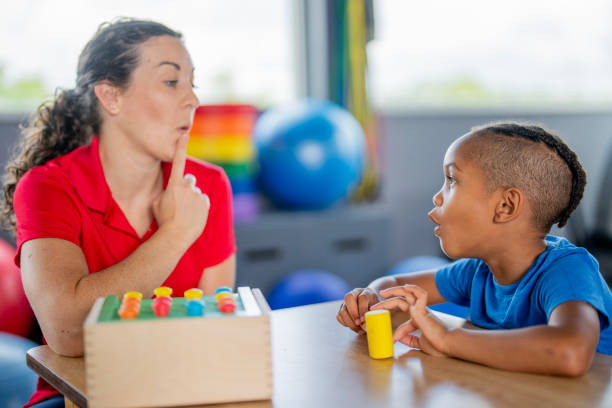When it comes to helping children with autism succeed, School Based ABA Therapy offers one of the most effective and convenient approaches available. It brings Applied Behavior Analysis (ABA) directly into the school environment—where students spend most of their day—allowing for meaningful learning in a familiar setting.
In this article, we’ll explore what School Based ABA Therapy is, how it works, and why it’s a powerful tool for supporting students with autism and other developmental challenges.
What is School Based ABA Therapy?
School Based ABA Therapy is the application of ABA techniques within a school setting. It involves trained behavior technicians and Board Certified Behavior Analysts (BCBAs) working closely with teachers, school staff, and parents to support a student’s behavioral, social, and academic goals.
Rather than pulling students out of their environment, ABA therapy is integrated into their daily routines—making it easier to generalize skills like communication, attention, social interactions, and classroom behavior.
Why is ABA Therapy in Schools So Effective?
ABA therapy is known for being data-driven and highly personalized. When this model is brought into a school, several unique benefits emerge:
-
Natural Learning Environment: Children can practice new skills in real-time—during class, at lunch, or on the playground.
-
Ongoing Support: Instead of a few hours per week in a clinic, students receive daily assistance right where challenges occur.
-
Team Collaboration: Teachers, therapists, and school counselors can work together toward consistent goals.
-
Early Intervention: Behavior issues can be addressed before they escalate, keeping students in the classroom and on track.
This approach makes therapy more effective and helps create a positive learning environment for everyone involved.
Who Benefits from School Based ABA Therapy?
While School Based ABA Therapy is especially effective for students with autism spectrum disorder (ASD), it can also benefit students with:
-
ADHD
-
Social-emotional delays
-
Learning disabilities
-
Behavioral challenges
-
Communication difficulties
Therapists tailor strategies based on each student’s Individualized Education Program (IEP) or 504 Plan to ensure they meet their specific needs.
What Does a Typical School Based ABA Program Include?
Every school and student is different, but a strong ABA program typically includes:
1. Functional Behavior Assessment (FBA)
A BCBA conducts an assessment to understand the reasons behind specific behaviors—such as outbursts, noncompliance, or trouble focusing.
2. Behavior Intervention Plan (BIP)
Based on the FBA, a customized plan is developed to reduce challenging behaviors and teach positive alternatives.
3. Direct Support by Behavior Technicians
Trained therapists (RBTs or paraprofessionals) work one-on-one or in small groups with students during the school day to implement the plan.
4. Staff and Teacher Training
Teachers receive ongoing coaching and support so they can reinforce strategies even when therapists aren’t present.
5. Data Collection and Progress Monitoring
Therapists track progress daily, and BCBAs review the data regularly to update goals and strategies.
Key Benefits of School Based ABA Therapy
Real-Time Behavior Support
Because therapists are present during the school day, they can provide immediate intervention when challenging behaviors occur. This allows for quicker resolution and helps prevent disruption in the classroom.
Social Skill Development
School is the perfect place to practice social interactions. ABA therapists can coach students through peer conversations, group work, and playtime—helping them build confidence and friendships.
Academic Engagement
Many students with developmental delays struggle to stay focused or follow instructions. School Based ABA Therapy helps them learn how to participate more fully in academic tasks and routines.
Consistent Communication Between Home and School
ABA providers often work with both schools and families. This ensures that strategies used in the classroom are reinforced at home, creating consistency across environments.
How is School Based ABA Therapy Funded?
Funding for School Based ABA Therapy varies by district and state. Here are a few common sources:
-
School Districts: May include ABA services as part of a student’s IEP.
-
Private Insurance: In some cases, insurance covers in-school ABA if approved by the plan.
-
Medicaid: Certain programs support behavioral therapy in schools for eligible children.
-
Private Pay or Grants: Families may also explore scholarships or nonprofit programs for support.
Many ABA providers work directly with schools to secure funding and ensure services are accessible to students who need them.
What to Look for in a School Based ABA Provider
When choosing an ABA provider for your school or district, look for:
-
Certified BCBAs and RBTs
-
Experience in Educational Settings
-
Strong Communication Skills
-
Clear Progress Tracking and Reporting
-
Collaborative, Respectful Approach
A great provider will feel like an extension of your teaching team—not an outsider.
How to Get Started with School Based ABA Therapy
Getting started is easier than it sounds. Here’s what the process usually looks like:
-
Referral or Request: A teacher, counselor, or parent can request ABA support through the school’s IEP team.
-
Assessment: A BCBA evaluates the student’s needs through observation and interviews.
-
Plan Development: The team creates an individualized treatment plan aligned with educational goals.
-
Implementation: Daily support begins with a focus on the student’s top needs.
-
Ongoing Collaboration: Teachers, parents, and therapists meet regularly to track progress and make adjustments.
Final Thoughts: Why School Based ABA Therapy Works
School Based ABA Therapy isn’t just a service—it’s a partnership between families, educators, and behavioral specialists. When students receive this kind of support where they learn, the impact can be life-changing. From improved classroom behavior to meaningful friendships and stronger academic performance, ABA therapy in schools helps students reach their full potential.
If you’re an educator, administrator, or parent looking to support a student with special needs, School Based ABA Therapy might be the key to helping them thrive.









